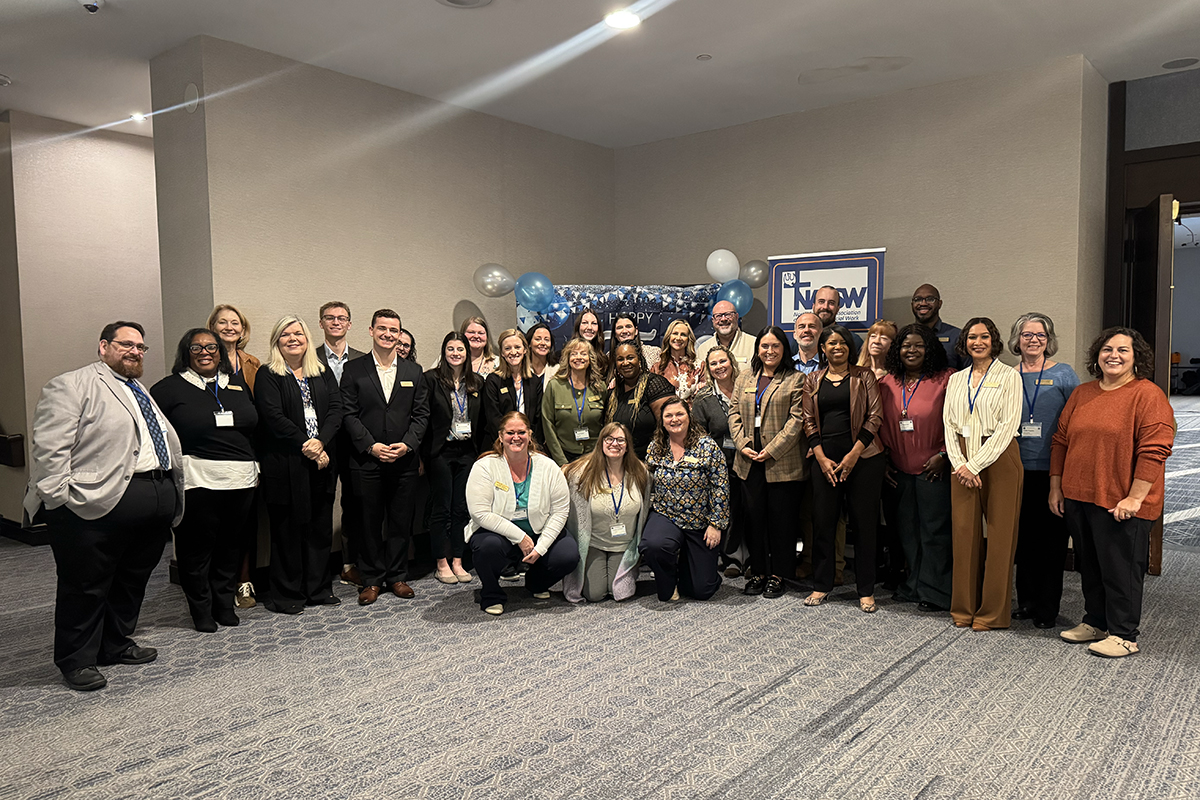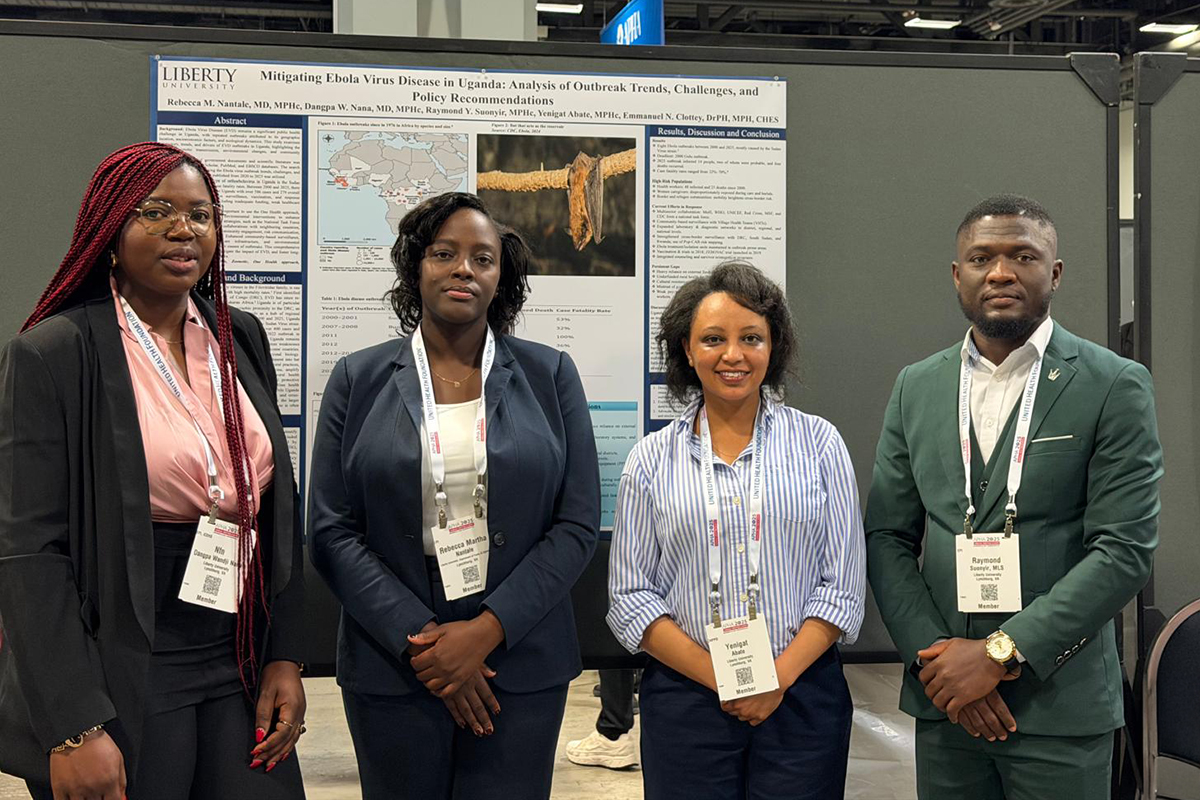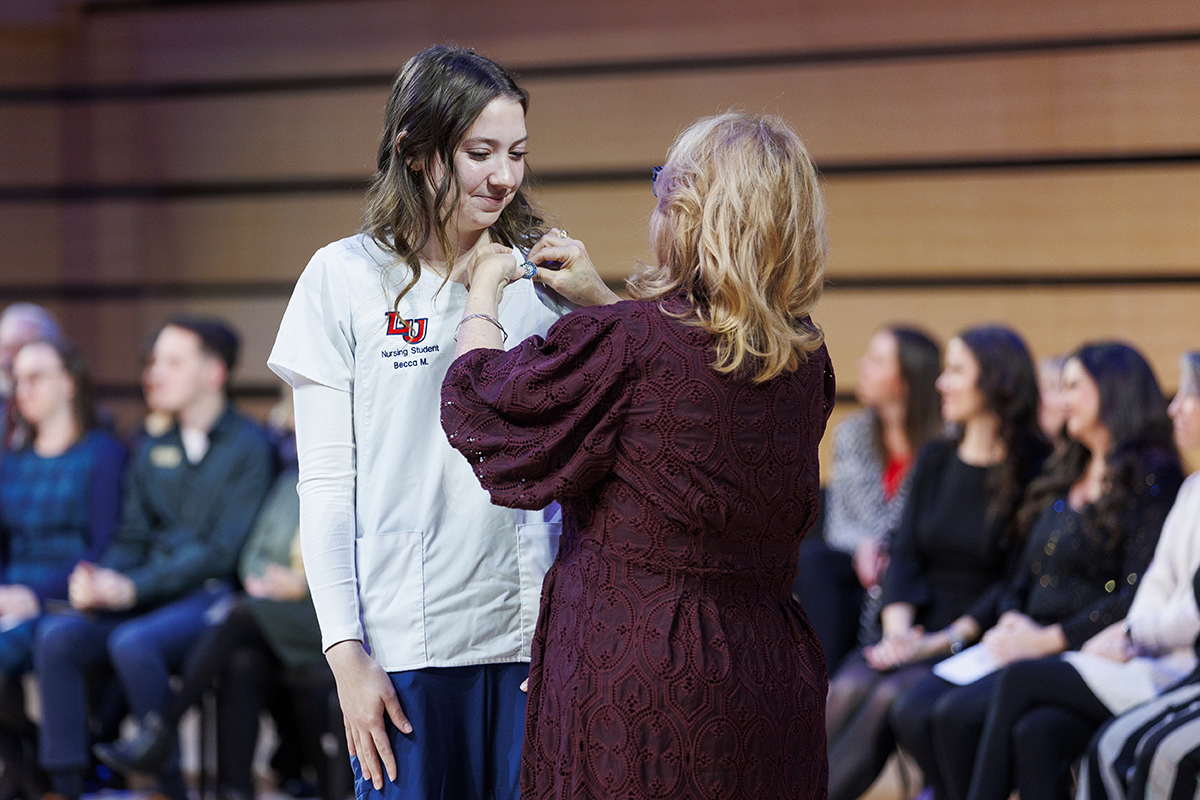Liberty biology & chemistry students gain experience at Johns Hopkins, UNC labs
September 25, 2025 : By Ryan Klinker - Office of Communications & Public Engagement
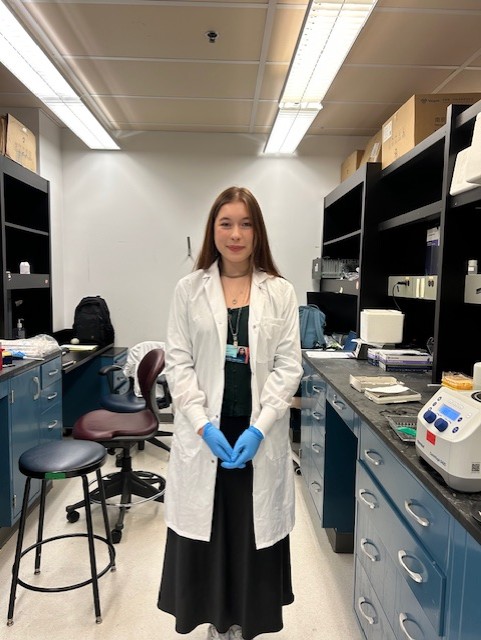
Two biotechnology seniors from Liberty University’s Department of Biology & Chemistry spent 10 weeks this past summer interning at prestigious university laboratories, adding to their research résumés they began at Liberty.
Emily Bayliss was selected to work in the lab of Dr. Jiou Wang, a biochemistry and molecular biology professor at Johns Hopkins University’s Bloomberg School of Public Health, where she studied a specific RNA binding protein in the context of neurodegeneration, specifically ALS. Mario Palacios interned under Dr. Sylvia Fitting with the Psychology and Neuroscience Department at UNC Chapel Hill, where he investigated the therapeutic or protective effects of endocannabinoids, like THC and CBD, on HIV-associated brain diseases like Alzheimer’s and dementia.
Bayliss’ said interest in research was piqued by doing organic chemistry work with Adjunct Professor of Chemistry Dr. Michael Korn during the spring semester of her sophomore year, and she participated in the Biology & Chemistry Department’s ASSURE summer program, where she joined a research team of Associate Professor of Biology William Moore that continues to do cell biology and microbiology work. She is also a research assistant for work done by Professor of Biology Dr. Gary Isaacs in genetics. As summer approached, she said she felt the desire to explore other research opportunities, and the internship at Johns Hopkins was “a dream fulfilled.” She said she learned many lab techniques and was surrounded by a team of other ambitious minds.
“My lab (team) was phenomenal, all the people there were so kind and willing to answer any questions that I had,” Bayliss said. “One of the biggest takeaways was experiencing what it’s like being in a large, full-fledged research lab. Everyone had their own projects that they were working on. I was there just to absorb and learn as much as I could, and by the end, I’d started to understand the context of the research I was doing.”
Wang said Bayliss arrived “with a strong foundation of skills and quickly adapted to our lab environment.”
“From the beginning, she showed initiative and was able to contribute meaningfully to her project right away. She collaborated well with others, brought positive energy to the lab, and made steady progress on her work.”
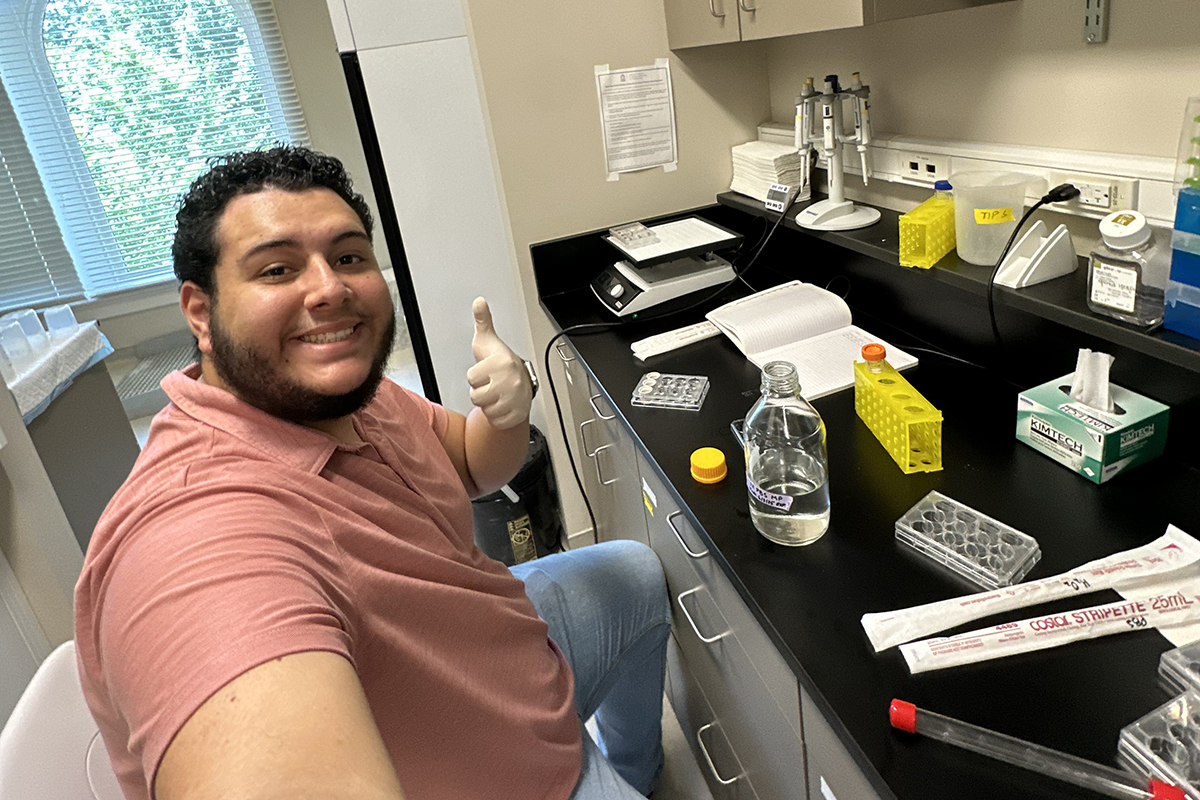
Palacios said his internship at UNC Chapel Hill taught him a lot of the practical — and maybe overlooked — steps of scientific research, such as preparing lab tools and equipment prior to tests and completing literature searches for other scientists’ findings.
“A lot of it was being able to grow in my independence in science and being able to start from an idea and develop an experiment out of that,” he said. “I got to learn how little ‘science’ is involved in science sometimes, or how much of research is modifying the lab, reading, and so on before you start tests. There are so many practical aspects of it that were scientific in a sense but more so organization.”
“Mario Palacios was an exceptional member of our laboratory during his 2025 internship, demonstrating intelligence, quick thinking, and a strong work ethic,” Fitting said. “He consistently went out of his way to read up on relevant research, proactively sought ways to improve experiments, and contributed innovative ideas to enhance the efficiency of behavioral tasks. His professionalism, initiative, and leadership make him a highly valued researcher, and his intelligence, proactivity, and independence set him apart as a promising future scientist.”
The data Palacios collected will be part of a poster that he will be presenting at the Mid-Atlantic Cannabinoid Research Collaborative (MACRC), No. 14–16, 2025, Outer Banks, NC.
Palacios has been conducting immunology research at Liberty alongside Associate Professor of Biology Dr. Lindsey Stevenson since January.
In recent years, Liberty’s School of Health Sciences has worked with Johns Hopkins, UNC Chapel Hill, and Uniformed Services University to send Liberty students to outside labs over the summer break. Liberty’s Department of Public Health, also under the School of Health Sciences, has an ongoing partnership with Johns Hopkins in which three Master of Public Health students from Liberty spend a yearlong fellowship learning about healthcare policy reform from renowned Hopkins faculty.
“These internships are more than résumé builders — they’re launchpads for transformation,” School of Health Sciences Dean Dr. Heidi DiFrancesca said. “When our students step into world-class labs at institutions like Johns Hopkins and UNC Chapel Hill, they’re not only learning research techniques; they are discovering their capacity to lead, innovate, and contribute meaningfully to the scientific community. At Liberty’s School of Health Sciences, we’re intentional about creating rigorous pathways, through our academic programs and hands-on learning opportunities, that empower students to grow intellectually and professionally while staying grounded in purpose. These experiences accelerate our students’ progression and prepare them to thrive in both graduate studies and impactful careers.”
